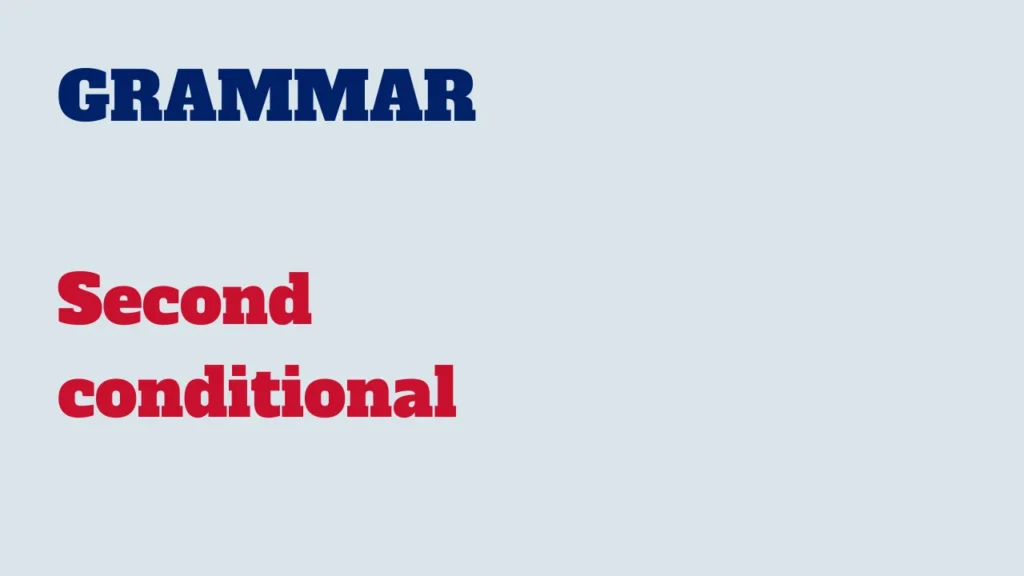The second conditional is a type of conditional sentence used to talk about unreal or unlikely present or future situations. It expresses a condition that is not true in the present or future and its probable result. The second conditional is formed with the simple past tense in the “if” clause and the modal verb “would” plus the base verb in the main clause.

In this lesson, we will delve into the structure, usage, and common scenarios for the second conditional.
Structure of second conditional:
If Clause: Past simple
Main Clause: Would + base verb
Examples:
If I had a million dollars, I would buy a house.
If it rained tomorrow, I would stay at home.
If she studied harder, she would pass the exam.
Common uses of second conditional:
Expressing unreal or unlikely present or future situations:
“If I were president, I would make changes.”
Offering or asking for advice or making hypothetical suggestions:
“If you were in my shoes, what would you do?”
Making polite requests or offers:
“If you could help me, I would appreciate it.”
Key points about second conditional:
- Unreal or unlikely condition: The second conditional talks about situations that are not true or are unlikely in the present or future.
- Use of “Would”: The main clause is formed with “would” to indicate the hypothetical or unreal result.
- Simple past tense in “If” clause: The condition is stated in the simple past tense, even if the situation is ongoing.
Common mistakes to avoid:
Incorrect use of present tense in “If” clause:
Incorrect: If I have a million dollars, I would buy a house.
Correct: If I had a million dollars, I would buy a house.
Confusing “Was” and “Were”:
Incorrect: If I was a bird, I would fly.
Correct: If I were a bird, I would fly.
Additional tips:
Use of “Could” and “Might”:
Instead of “would,” “could” or “might” can be used in the main clause for different degrees of probability.
Example:
“If it snowed tomorrow, we could build a snowman.”
Imaginary situations:
The second conditional is often used for imaginary or hypothetical situations, so it helps express creativity and speculation.
Mastering the second conditional will enable you to express unreal or unlikely situations and provide hypothetical solutions or suggestions. Practice creating sentences in the second conditional to reinforce your understanding. Happy learning!



